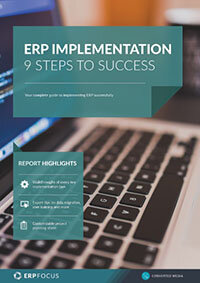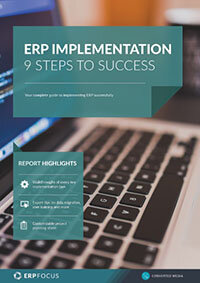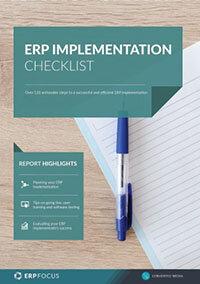ERP superusers: who, what and why
In a 2006 Gartner, Inc. white paper entitled Superuser role is key to post-implementation support of ERP systems the research firm outlined a series of first principles regarding useful considerations of ‘super users’ in the ERP space. Even though the information is now a decade old, the work has stood the test of time since its initial intellectual framework easily applies today.
Who are ERP superusers?
In terms of a pure definition, the phrase ‘superuser’ typically applies to an individual who serves to bridge practical gaps between an enterprise’s end user community and its IT operators, and necessary administrative and/or business cadres. While the phrase suggests intrinsic technical experience, responsibilities in this case are not largely driven by systems-related tasks, but instead are guided by a need for end-to-end coordination.
Recommended reading: implement your ERP successfully with our 11 step guide to ERP implementation success.
What do ERP superusers do?
Today’s ERP platforms are both complex and invasive when fully-subsumed within an enterprise’s operational infrastructure. However, whilst various senior management, project, business, third-party, and individual systems integration groups typically support the direct implementation of new ERP systems; once the lights are on these task-focused units usually disappear, and leave any go-forward issues in the hands of an enterprise’s technical folks.
While IT operators are critical players when resolving any ERP-related systems problem, the loss of previous direct communications at a business level can cause mis-understood or mis-applied fixes, leading to lost time and money. On the other hand, if an enterprise trains super users who are empowered to ride herd on issues end-to-end, then everyone gets the memo at the same time. The enterprise can thus move through any concerns more efficiently, at a minimum of muss and fuss.
Aside from a pure problem-solving perspective there are other useful coordination tasks that super users offer including:
Direct support for end user communities
Clarify and educate all-level ERP stakeholders regarding practical and technical requirements, thereby creating quicker intellectual work-arounds, and/or the delivery of needed business-centric customizations
Provide common knowledge programs that direct support technical, business and user education
Identify and propose new business process enhancements
Why are ERP superusers important?
The global nature of today’s economic and regulatory climate forces enterprise’s to maintain unprecedentedlevels of flexibility, ranging from the supply-chain, to the shop floor, and all the way to the after-sale customer service level. This means that managers, sales, marketing, finance, ERP operators, and IT professionals are under terrific pressure to make the right decisions, the first time, every time.
While successful enterprises typically harbor competent professionals at all levels, there is only so much time available within a given day. The pace of events increases the chance of missed business opportunities at both the strategic and tactical levels.
That said, on the enterprise side of the equation, at least, super users can relieve some of this pain by supporting:
Early identification of likely vendor enhancements
Business benefit analysis
Early upgrade plans programming as necessary
Develop early-warning comparisons of external business weakness
Support for change management as required
Free white paper

ERP Implementation: 9 steps to success
The 9 proven steps you should follow when implementing ERP

Featured white papers
-

ERP Implementation: 9 steps to success
The 9 proven steps you should follow when implementing ERP
Download -

ERP Implementation Checklist
Over 120 actionable steps to implementing a new ERP successfully
Download -

Manufacturing ERP Implementation Checklist
Over 70 actionable steps to rolling out new manufacturing ERP software
Download
Related articles
-

ERP implementation plan (ERP implementation process guide)
Everything you need to know about running a successful ERP implementation - and we mean everything
-

Secret KPI: Why Your ERP Implementation Team Matters More Than Software
Learn how Godlan ensures successful ERP implementation for manufacturers with proven strategies &...
-

4 training tips for manufacturing ERP success
These four training tips will help your employees get the most out of your new manufacturing ERP ...

